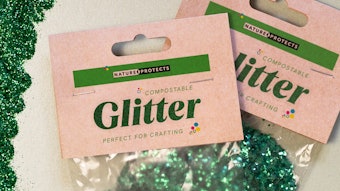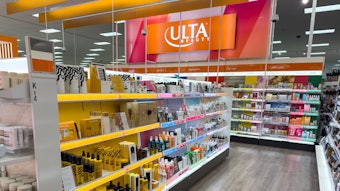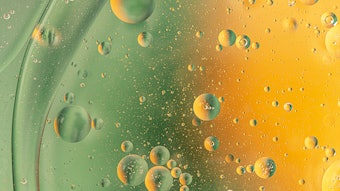In “To ban or not to ban triclosan? That is the question.,” a post from Kline Blogs, the marker researcher investigates the implications of a proposed FDA rule that would likely ban triclosan.
The blog notes, “On December 16, 2013, the Food and Drug Administration (FDA) issued a proposed rule that would require manufacturers of antibacterial hand soaps and body washes to demonstrate that their products are safe for long-term daily use and more effective than plain soap and water in preventing illness and the spread of certain infections. The FDA is specifically targeting triclosan, a chemical proven to have some adverse effects on animals and humans alike because it is absorbed through the skin."
How would this affect beauty companies? “Kline & Company observes that most marketers would likely choose the path of least resistance and replace [triclosan] with another ingredient which has almost the same efficacy and can support the claims or benefits that a company proposes,” the blog theorizes. “Due to the fact that consumers are already reading a lot about this ingredient and all the negative publicity that it is getting, its usage in other categories is also decreasing—face washes and toothpastes to name a few. Irrespective of the final decision of whether or not triclosan is harmful, Kline believes the publicity has already created a negative perceived image and companies will gradually choose to discontinue using it in order to beef up sales in the near future. Henkel seems to be the only prominent marketer who is willing to take the fight back to the FDA and support it with more documents and evidence in favor of triclosan usage.”
While immediate replacement isn’t necessary, Kline sees that changes are imminent. The blog says, “The FDA has given manufacturers a year to produce data showing that the chemicals are both safe and effective. According to the agency, if they cannot prove it, the chemicals will need to be removed from the products. It does not apply to hand sanitizers, wipes, or antibacterial products used in health care settings.” And, as many brand owners know, costs of reformulation could be significant. “Such a change could prove costly for manufacturers in R&D, reformulating and marketing,” the blog notes. “Kline’s cosmetic industry analysts estimate that antimicrobial and antibacterial hand soaps represent about half of the $900 million market for liquid hand soaps in the United States in 2012. In toothpastes, triclosan was once a welcome innovation. It was a key part of the ingredient story for Colgate Total in the late 1990s, a launch that helped propel the Colgate brand ahead of Crest at the time. Of late, the use of triclosan in the $2.2 billion toothpastes market has been decreasing because of growing public concern over the ingredient.”
Movement on the subject has already happened. “As consumer groups have campaigned against triclosan, some consumer product manufacturers have removed it and substituted less controversial ingredients since 2011. For example, Reckitt Benckiser removed triclosan from three face washes. In response to “changing consumer preferences,” Colgate-Palmolive reformulated its Palmolive Antibacterial Dish Liquid and Softsoap liquid hand soap to eliminate triclosan. The Personal Care Products Council responded to this decision by stating ‘We intend to file comments to the FDA reaffirming that the use of antibacterial wash products in the home environment does not contribute to antibiotic or antibacterial resistance. The ingredients used in antibacterial soap and washes have been evaluated and regulated by agencies and scientific bodies around the world. In some instances, these products have been found to be critical in the reduction of infection and disease,’” explains the post.
Additionally, “Kline also predicts that sales of antibacterial liquid hand soaps will likely slide in 2014, being replaced by non-antibacterial counterparts. Brands that skew heavily towards an antibacterial lineup, like Dial (Henkel), would likely suffer the most if forced to recall the ingredient. Since many marketers have already begun minimizing the use of triclosan in their product formulations, the overall impact would likely be minimal,” the blog post concludes.
So how will your brand react?










